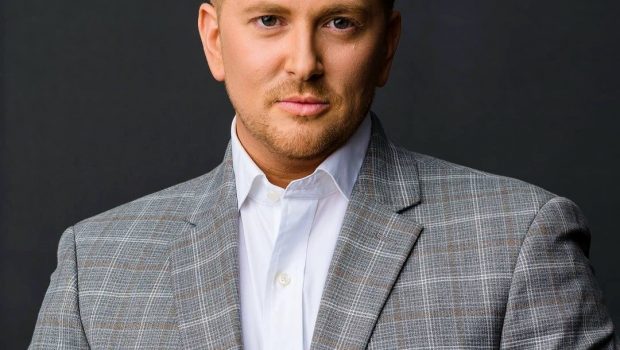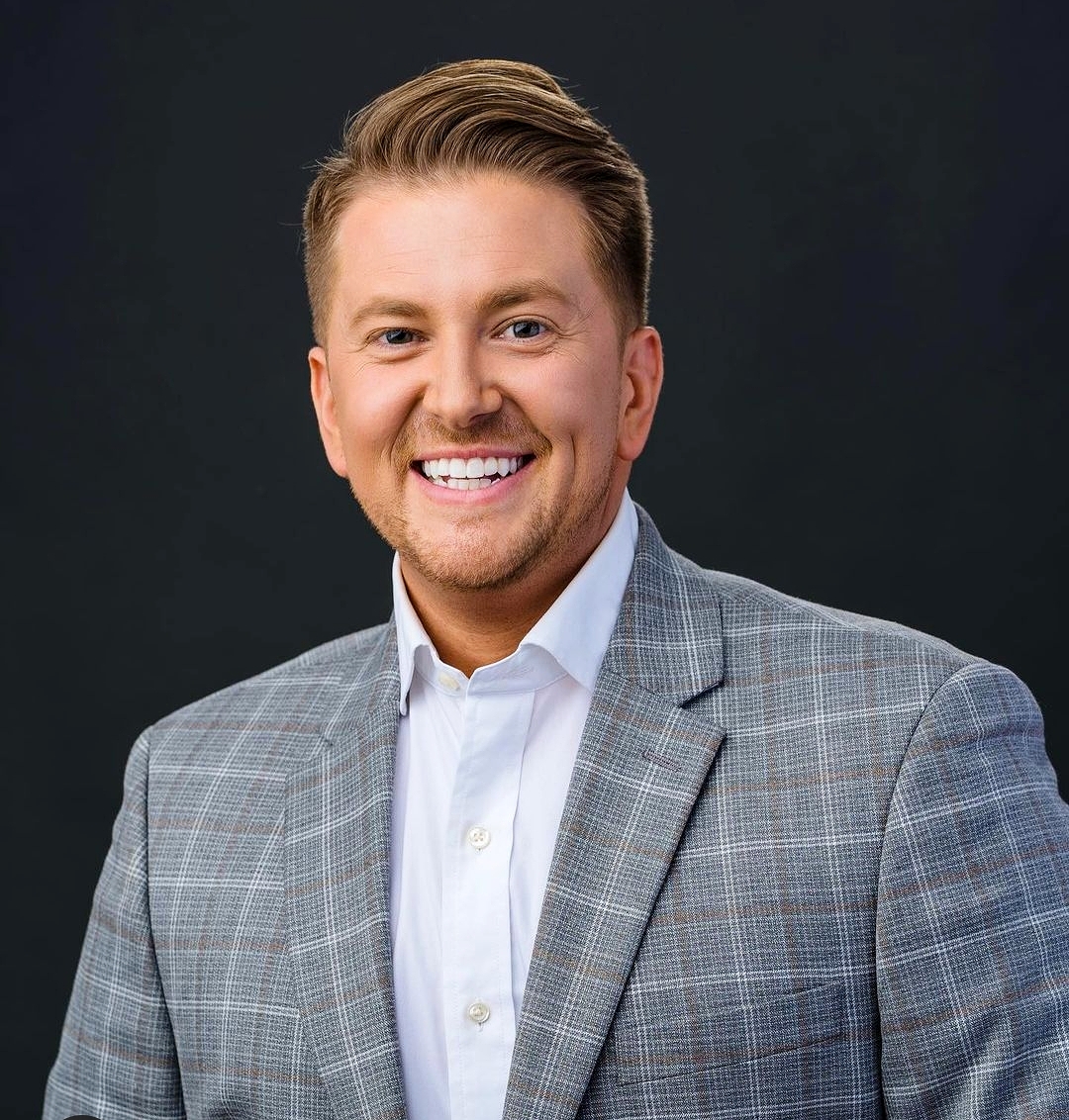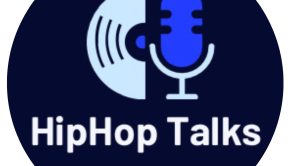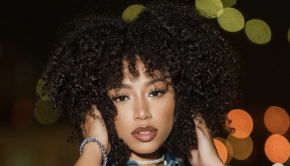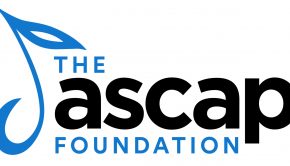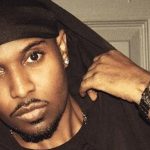Interviewing “Good Morning America” Producer, Cody LaGrow An Emmy Winning Journalist
Cody LaGrow is an Emmy award-winning journalist and a correspondent/producer with Newsy Documentaries. Prior to Newsy, Cody was an associate producer at ABC’s “Good Morning America” in New York and a local news reporter in Missouri. At present, Cody is based in Chicago and he is also an essential contributor on ABC 7 Chicago’s “Windy City LIVE!”. More information about Cody can be found on his social media platforms. His social media handle is @codylagrow and is verified on both Twitter and Instagram. The Hype Magazine’s international correspondent, Charles Myambo (CM) sat for an interview with Cody LaGrow (CL). Below are some excerpts from the interview.
CM: It is no secret that you are one of the world’s best journalists. Did it ever occur to you during your college days that you would emerge into the icon you are today?
CL: I once posed a witty question to Dr. Anthony Fauci during the height of the pandemic and we both enjoyed a good laugh. That moment with Fauci went viral. I was telling a story about how infectious diseases, like HIV and COVID-19, impact Black communities more than white communities in the United States. I was discussing a harsh reality that needed to be addressed but via candid conversation.
I knew that aspect of my personality existed in college — someone with the ability to discuss serious issues while bringing levity to the topic at-hand. Humor has always been a part of me. Harnessing it for storytelling is something I’ve developed with time.
CM: Your credentials and accolades are impressive to say the least. Which of your achievements thus far holds the most significance for you?
CL: For me, an achievement is not something I can frame on a wall or polish on a shelf. Achievement is a feeling you get when your work changes how someone views the world.
I profiled a woman named Emily Persicketti — a 25-year-old Chicago-area pediatric nurse who decided to start a new life as a nun. She left her career behind, moved into a convent and was gracious enough to allow Newsy to film her experience over the course of a year.
The story, ‘Yes To The Bless: Year One As A Millennial Nun’ took off by itself — garnering 150,000+ views on YouTube alone. It was my first experience really hearing back from our audience about what this story meant to them.
The comments section on the piece was special. One woman confirmed after watching the piece, that life as a nun was for. I got texts from other convents thanking me for feeling seen. All of this, from a story, told by a gay man, in the Catholic church.
I love to challenge people’s assumptions. We all have them. But, in a story where you could focus on all of the sacrifices these women make to join the church, you learned to redirect that focus on what they’ve gained: peace, clarity, joy.
Who wouldn’t want any of those things? And how often do we think giving up our material possessions would lead to that?
If a story generates the kind of discussion where an audience can think critically on cultural issues, then honey, THAT’S ACHIEVEMENT.
CM: During your exemplary rise, which individuals would you say inspired you the most and why?
CL: I grew up in a town of 2000 people in Missouri. TV was my window into the outside world — and I’ve never been able to get enough. (Note: I will never claim these are age appropriate — I was largely unregulated with two working parents)
Interviewers like Oprah and Howard Stern. I’d be lying if I left out Sally Jesse Rapheal, Jenny Jones and Ricki Lake. Personalities like Ross Mathews alongside Jay Leno. Classic broadcasters like Regis Philbin, Kathie Lee, Tom Brokaw and Dick Clark. I loved comedy as a kid. Saturday Night Live, MADtv, The Queens of Comedy. Again… largely unregulated.
CM: You have won an Emmy, you are an award winning producer, presenter, correspondent and reporter. What drives you to be so multifaceted and how do you balance all your roles?
CL: I’m not necessarily afraid of failure, but I’m afraid of feeling incompetent. That drives me to take on the tasks thrown my way, learn how to master them, and use the new skillset to elevate. And when you don’t know a thing about TV, you have to start somewhere. I started in production. Here’s a story: As a production intern at the top morning show in the US, it was one of my duties to get coffee at 3am for the staff. The closest place the boss preferred was an underground Dunkin Donuts, near the subway, in New York City. The credit card they always gave me was mangled, chewed and never worked. You could not slide this card, grab the coffee, and get back to doing unpaid work. The Dunkin team also did not know how to run the card manually by punching in the numbers. So what do you do? Not show up with the boss’s coffee in the middle of the night? Never. Use my own card?! I had three dollars to my name. It wouldn’t work. It was intern hell — but I knew I needed a solution.
I asked the overnight staff if I could see their screen and see if we could troubleshoot the problem together. I worked in food service and retail previously and thought I could “just maybe” figure it out if we worked together. And we did. We needed each other. So, in the process of learning the Dunkin Donuts software, it was not lost on me how important every role is to the final product. And if you want to know how to make the best product, whether that be a Boston Creme donut or a national broadcast, you need to know how it’s done at every level. The best hosts are also the best producers, writers and editors. Period. Being one-dimensional is boring. Go learn the Dunkin Donuts interface! And be nice to the interns!
CM: Success is usually never acquired instantly and I presume you encountered some challenges along the way. Could you share a few of the challenges you’ve had to battle and how did you overcome them?
CL: Look, this is a tough industry. The biggest challenge is the people who are going to tell you what’s wrong with you and why you don’t belong on TV. I can’t say anything that will change that.
To be very honest, I did not have the best response to criticism or rejection early in my career. Here’s what I can offer: Remove your ego from the situation. Remove what “you think” your life should look like. Remove the quantification of achievement.
Once you do that, your perspective will clear. It will show you to work where you’re wanted, to be who you are meant to be and to live a life outside of your career. I am still getting critiqued and rejected. Daily. LOL. But it does not sting anymore. It’s shown me whose vision is aligned with mine. And that’s when real magic happens.
CM: What responsibility do you believe media conglomerates and professionals have in the world today?
CL: The media has immense responsibility in today’s heated climate. I think the editorial standards to publish a story are often forgotten by the media’s biggest critics — likely by how easy it is to put content on the Internet today that can appear legitimate.
I think “we the media” could do more regarding news literacy and educating the public on how to decipher between what is real and fake. My parent company, The EW Scripps Company, has a News Literacy week for this type of coverage. It’s vital in today’s oversaturated environment.
I also think we have to remember why we watch the news. It should be to think critically and explore different perspectives on a range of issues. If you are seeking content that bolsters your already existing beliefs, you’re doing the news wrong.
CM: Where do you envisage world media being perhaps in the next 10 to 20 years?
CL: Ten years ago, I was still shooting on TAPE. TAPE, I SAY. I can’t see the future, but I know technology drives this industry and it changes every day.
I hope by then, we’re treating Internet culture as part of the mainstream culture — not this digital entity where younger people are spouting off. The lines have blurred and our digital presence is a part of our real-life experience now.
I think that shift will also allow for a rise in independent journalists who cultivate their own followings and stories outside of major outlets. Look at SubStack. Or TikTok during the Johnny Depp v. Amber Heard trial. Views are not everything — but they are important.
I also envision every major company, not just broadcast, having in-house storytelling entities kind of like their own company channel to be viewed digitally. Storytelling is powerful and no longer reserved for the 6pm newscast. It’s an effort to learn more about the people around you, and I hope that stays around forever.
Tweet
